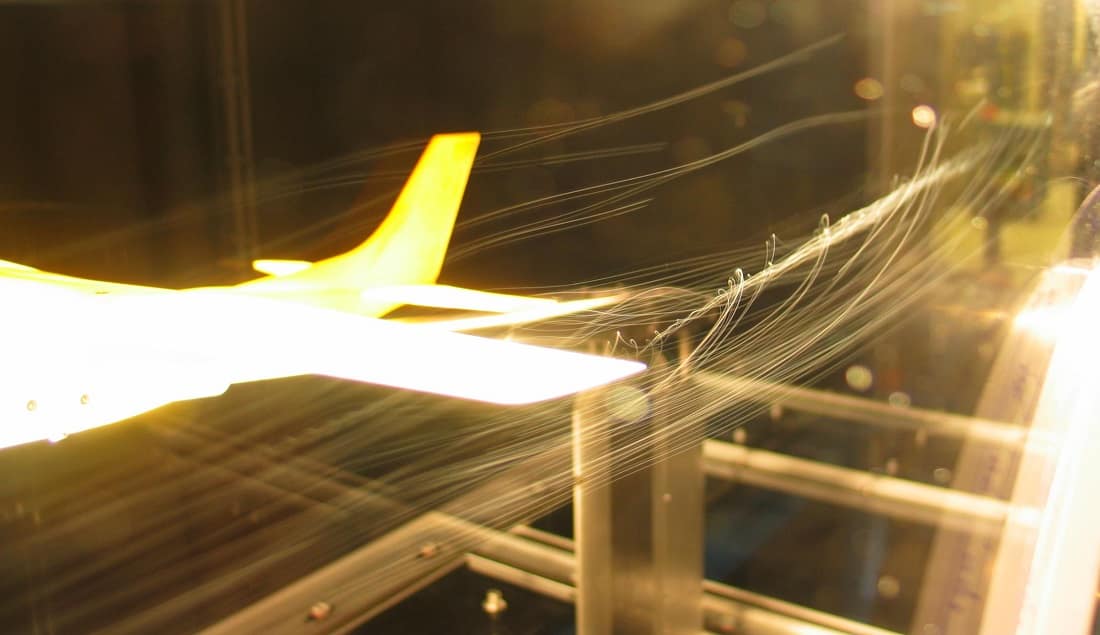Professor Receives Grant from the Air Force Young Investigator Research Program

The Air Force Office of Scientific Research has announced that Dr. Ebenezer Gnanamanickam, Assistant Professor of Aerospace Engineering at Embry-Riddle’s Daytona Beach Campus, has been awarded a three-year, $360,000 grant through the Air Force Young Investigator Research Program.
Gnanamanickam is the first Embry-Riddle professor to receive an Air Force Young Investigator research grant. His proposal to study the fluid dynamics of turbulence was one of 56 projects funded out of over 265 that were submitted by university researchers across the country for fiscal year 2017.
The Air Force Young Investigator Research Program supports scientists and engineers who have received a Ph.D. or equivalent degrees in the last five years and show exceptional ability and promise for conducting basic research. The idea is to foster creative basic research in science and engineering, enhance early career development and increase opportunities for the research scientist to recognize the Air Force mission and related challenges in science and engineering.
Gnanamanickam will be studying specific aspects of how an object that moves through a fluid (air, water) creates turbulence and how to make the process more efficient by reducing the drag on the object.
“Pretty much any object that moves through the air creates turbulence, such as a car, an aircraft or even a bumble bee,” said Gnanamanickam. “This turbulence generated is constantly interacting with itself and the object. I proposed to systematically study an aspect of this interaction and then learn to control this rather chaotic beast that is turbulence.”
The Air Force Office of Scientific Research describes basic research such as this as the foundation of all scientific and engineering discovery and progress–it is what leads to new inventions and concepts, many of which are revolutionary.
“The long term goal of this basic research is to understand and control turbulence to make engineering system more efficient, whether it is a car that gets better gas mileage or an aircraft with less fuel burn,” said Gnanamanickam.
“We are proud of Dr. Gnanamanickam and excited he will be a part of the Air Force Young Investigator Research Program,” said Dr. Tasos Lyrintzis, Distinguished Professor and Department Chair of the Aerospace Engineering program. “It’s research like this and other projects we’re working on for NASA, the National Science Foundation, DARPA and many industry partners that give our students such extraordinary opportunities to work with visionary scientists and showcase their achievements.”
To learn more about the Air Force Young Investigator Research Program through the Air Force Office of Scientific Research, go to: http://www.wpafb.af.mil/news/story.asp?id=123466938
Embry-Riddle’s Aerospace Engineering degree program is the largest program of its kind in the U.S. and has been ranked No. 1 among schools without a doctoral program for 16 straight years. A PhD program in Aerospace Engineering was initiated in the fall of 2013. Aerospace Engineering deals with the scientific principles that govern the design of airplanes, spacecraft, and jet engines. Graduates of this selective program are highly sought after by the aerospace and aviation industry.
MEDIA CONTACT: James Roddey, Director of Communications, Embry-Riddle Aeronautical University, Daytona Beach, Fla.; Office: (386) 226-6198; james.roddey@erau.edu.

 James Roddey
James Roddey